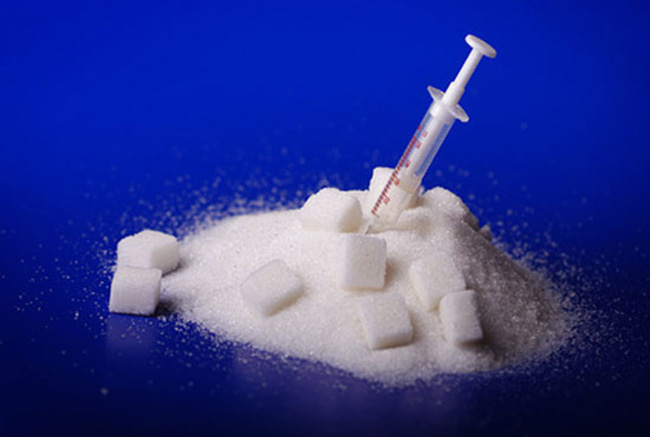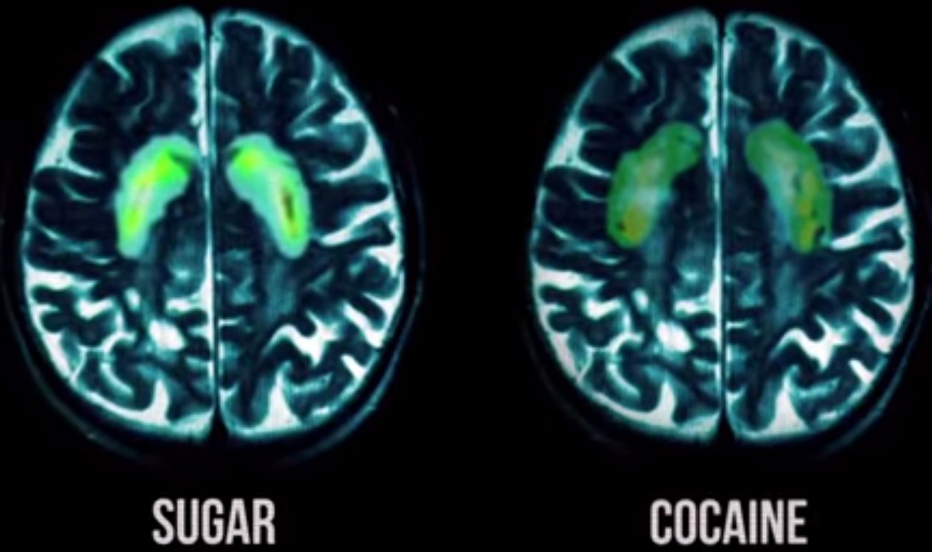 Of sugar, New York Knicks basketball player Derrick Rose says, “Everyone’s got their poison; mine’s sugar.” Perhaps calling sugar a ‘poison’ is a bit strong, but the truth is that sugar—particularly the processed stuff—is not very good for you. In fact, many healthcare professionals and nutritionists now are actually calling sugar an addictive substance. If you look up the term ‘addictive’ in a thesaurus, similar words are ‘habit-forming,’ ‘obsessive,’ and yes, even ‘enslaving.’ But how addictive is sugar, really? Following are some important daily health tips about the potential addictive qualities of sugar that will help you decide for yourself how much sugar is too much.
Of sugar, New York Knicks basketball player Derrick Rose says, “Everyone’s got their poison; mine’s sugar.” Perhaps calling sugar a ‘poison’ is a bit strong, but the truth is that sugar—particularly the processed stuff—is not very good for you. In fact, many healthcare professionals and nutritionists now are actually calling sugar an addictive substance. If you look up the term ‘addictive’ in a thesaurus, similar words are ‘habit-forming,’ ‘obsessive,’ and yes, even ‘enslaving.’ But how addictive is sugar, really? Following are some important daily health tips about the potential addictive qualities of sugar that will help you decide for yourself how much sugar is too much.
What is an addiction?
The term ‘addiction’ is defined as the state of being enslaved to something that is physically or psychologically habit-forming to the extent that quitting it can cause severe trauma. Naturally, when we think of an ‘addiction,’ what most of us think of is the state of being addicted to a drug such as narcotics. But recent studies have shown that sugar can be just as addictive as cocaine. Some researchers even would argue that it is more addictive.
What are sugar’s effects on the brain?
 An addiction is called such largely because of its physical affects on the brain. Drugs such as narcotics activate the brain’s ‘pleasure centers.’ However, some researchers have learned in medical studies on rats that sugar actually activates the same pleasure centers in the brain as cocaine. In fact, when sugar is consumed, dopamine, a brain neurotransmitter, is released. This neurotransmitter is often referred to as the ‘reward circuit’ that is directly linked with many addictive behaviors. When a person experiences the pleasurable affects of an addictive substance, they crave that same experience again, which in turn causes them to seek out that same experience again and again. And, with each pleasurable experience, the brain releases less dopamine, causing the subject to need more of the addictive substance, in this case sugar, and in greater frequency. In short, this person has built up a tolerance and needs more each time to feel the same reward.
An addiction is called such largely because of its physical affects on the brain. Drugs such as narcotics activate the brain’s ‘pleasure centers.’ However, some researchers have learned in medical studies on rats that sugar actually activates the same pleasure centers in the brain as cocaine. In fact, when sugar is consumed, dopamine, a brain neurotransmitter, is released. This neurotransmitter is often referred to as the ‘reward circuit’ that is directly linked with many addictive behaviors. When a person experiences the pleasurable affects of an addictive substance, they crave that same experience again, which in turn causes them to seek out that same experience again and again. And, with each pleasurable experience, the brain releases less dopamine, causing the subject to need more of the addictive substance, in this case sugar, and in greater frequency. In short, this person has built up a tolerance and needs more each time to feel the same reward.
But isn’t sugar found in nature?
Yes, but the sugar found in nature in such foods as fruits and sugar cane occurs with fiber. The difference here is that nature’s sugar helps us not only to feel fuller, but it also produces a shorter blood-sugar response. The problem with most of the sugars in today’s processed foods is that they are concentrated and refined. They have no fiber accompanying them, and this means that it takes more of these foods to feel full—if we ever feel full by eating them at all. Additionally, there is little or no nutritional value in most foods that are processed to include refined sugars.
How can I avoid getting addicted to sugar?
Naturally, the most obvious way to avoid being addicted to sugar is to never eat sugar. Unfortunately, most of today’s processed foods include refined sugar in one form or another. That’s the bad news. The good news is that we can train our taste buds to get used to receiving less sugar. No, it isn’t easy, but it’s not as hard as you might think. First, like with most endeavors, it’s best to start small and take baby steps. The next time you get a sugar craving, eat a piece of fruit. Try replacing just one refined sugary food per day with a piece of fruit. The first thing you’ll realize is that you’re getting fuller on a piece of fruit than you ever could on a cupcake—or even a whole box of them!
Most of us have had our sugar cravings, and many of us have binged on the stuff every now and again. The problem with sugar, especially the processed kind, often lies in its over consumption. Perhaps the best daily health tip about sugar, which indeed can be an addictive substance, is moderation. Grabbing a quick sugar snack like a candy bar, a couple cookies, or a piece of cake doesn’t have to be a bad thing. In fact, many foods that contain sugar are called ‘comfort foods’ for that very reason—they make us feel good when we eat them. Eating a balanced diet every day probably is the best answer to the question of whether or not sugar is addictive. Balancing a little not-so-good-for-you sugary comfort food in among a lot of healthy foods each and every day is the key to daily health.


